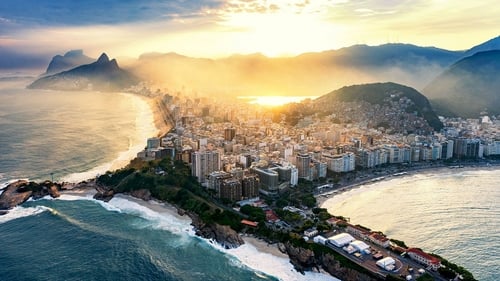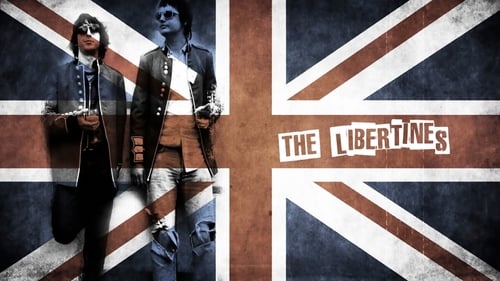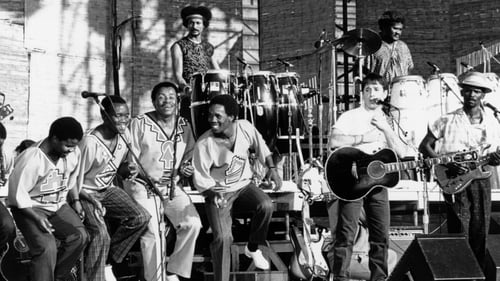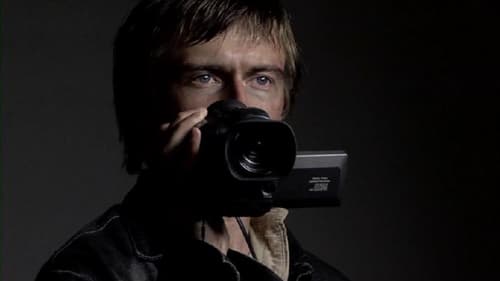
Following Sean (2006)
The more things change, the more we're not the same
Genre : Documentary
Runtime : 1H 27M
Director : Ralph Arlyck
Synopsis
Filmmaker Ralph Arlyck first met Sean while living as a graduate student in Haight Ashbury at the height of the 1960s. The city was awash with the trappings of America’s cultural revolution-the San Francisco State University campus flooded with cops in riot gear, the Haight filled with drifters and idealists, and, on the third floor of Arlyck’s building, a come-one-come-all crashpad apartment. It was from this top floor commune that the precocious 4-year-old Sean would occasionally wander downstairs to visit and talk-and one day Arlyck turned on his camera. Sean’s casual commentary on everything from smoking pot to living with speed freaks was delivered in simple sincerity throughout the soon-to-be famous 15-minute film. This First Child of the notorious decade may have shaken the audience with his simple sentence- “Sure, I smoke pot”-but it was his barefoot impishness which would encapsulate the hope that lay in front of the nation: a promise of infinite possibility.

Mental illness and the power of friendship. Mara and Joaquín were childhood friends, next-door neighbors. They are now in their early 30s. She's returned to Acassuno after eight years abroad, ostensibly to audition for a part in a musical. Joaquín has been a recluse in his parents' house, perhaps because Mara left without a word years before. Mara seeks to renew the friendship, which may be good f

After a tragic accident caused by the truck of the middle-aged Carl Lee where a woman dies with a crushed stern, he is arrested and sent to the county jail. His son PJ, who works washing dishes and cleaning tables in a restaurant, feels lost, without financial support to keep his father's house, and is fired from his job and evicted from his house.

Documentary about women's experiences of labour, in factories, mines and dockyards, in the USA during the second World War and how it affected their work and career aspirations once they were encouraged to give up such employment in peacetime.

Through the heart and photographic lens of international photographer Jo-Anne McArthur,
we become intimately familiar with a cast of non-human animals. The film follows Jo-Anne over the course of a year as she photographs several animal stories in parts of Canada,
the U.S. and in Europe. Each story is a window into global animal industries:
Food, Fashion, Entertainment and Research.

When Arthur, self-proclaimed son of God, sets off on a mission to find the Queen of Heaven, his world changes.

As troubling signs of global cataclysms accelerate, a brother and sister react to their father's desertion and the powerful presence of their mother's new boyfriend.

Rio de Janeiro. September, 2008. Three men stalk the gloomy back-alleys of the city's notorious slums. Spiderman, a 28-year-old drug lord, embarks on a routine patrol through the shadowy streets of Coréia, the sprawling slum he controls. Inspector Leonardo Torres, a muscle-bound operative from Rio's drug squad, inches through the alleys of another shantytown, shots ringing out around him. And Pastor Dione, an evangelical preacher intent on ending Rio's drug conflict, trawls the slums for lost souls. With unprecedented access to some of Rio's most wanted men, Dancing with the Devil in the City of God tells the story of Rio's drug war through the eyes of three men locked into one of the bloodiest urban conflicts on earth. Written by Jon Blair and Tom Phillips

A forest ranger is haunted by the disappearance of his four-year-old daughter, and the subsequent breakup of his marriage. He discovers his ex-wife Ana is pregnant to the policeman in charge of his missing daughter's case.

Samuel works in Brussels as a pharmaceutical delivery man. His gorgeous girlfriend Mireille heads off to New York to intern at a prestigious architecture firm. Shortly after her departure, Sam's computer is hacked. A series of rather dodgy IT-guys fail to protect his wireless network. The mysterious hacker seems intent on screwing up Samuel's life and his relationship with Mireille. Paranoia kicks in. Sam starts to suspect his neighbors and gets obsessed with WiFi-rays... Love, paranoia and two lovers separated by an ocean of communication devices.

A bold and unflinching documentary on 'white flight' in the area of Spanish Lake, Missouri, a post WW2 suburb. The town experiences rapid economic decline and population turnover due to racism and governmental policies which support the white exodus. The themes of the film parallel America's growing political divide, racial tension, and rise of anti-government sentiment.

An access-all-areas documentary about The Libertines reunion shows at Reading & Leeds Festivals 2010 from first time director Roger Sargent; photographer, witness and confidante of the band throughout their short and turmoil filled career. Featuring the present day story of the build up, rehearsals, warm-ups and concerts set against the painfully honest interviews with each band member recounting the band's history and illustrated by Sargent's unparalleled archive of classic Libertines photographs. An intense and intimate portrayal of arguably Britain's most exciting and influential band of the last decade.

A man coming off a disastrous affair with a married woman has a lyrical, strange and comedic cross-country journey in a modified VW bus.

“The Forgotten Faces (1961), a film reconstruction of the Hungarian revolution of 1956, won Watkins another amateur Oscar, and to this day, the film is praised in England as "one of the most memorable amateur films ever made".

BHUTTO is the definitive documentary that chronicles the life of one of the most complex and fascinating characters of our time. Hers is an epic tale of Shakespearean dimension. It’s the story of the first woman in history to lead a Muslim nation: Pakistan. Newsweek called it the most dangerous place in the world, and the home of nuclear war heads and the Taliban.

Face to Face is adapted from David Williamson's play of the same name which is in turn based on the transcripts from real conflict resolution sessions. The story is about a young scaffold construction worker who is charged with assaulting his boss. By the end of the film, all our assumptions about guilt and blame are turned on their heads. As 10 people sit in a room discussing the turn of events that brought our protagonist to breaking point, twists and surprises reveal that all is not quite as simple as it seems. Michael Rymer directs his screen adaptation of 'Face to Face' (written by Australian playwright David Williamson), as an ensemble piece about 10 very dissimilar Australians bound together by a complex pattern of relationships and shared histories. Hysterically funny and deeply moving, each character's role in the drama peels back another layer as the story digs down to the roots of who these people really are.

Paul Simon returns to South Africa to explore the incredible journey of his historic Graceland album, including the political backlash he received for allegedly breaking the UN cultural boycott of South Africa designed to end the Apartheid regime. On the 25th anniversary of Paul Simon's GRACELAND, acclaimed documentary filmmaker Joe Berlinger offers a glimpse at the controversy surrounding the decision to record the album in South Africa despite a UN boycott of the nation, which was aimed at ending apartheid. In the run-up to an eagerly anticipated reunion concert, Simon, Quincy Jones, Peter Gabriel, David Byrne, Harry Belafonte, Paul McCartney and others reflect on the decision to record with local artists in South Africa, and the cultural impact of the album that delivered such hits as "I Know What I Know" and "You Can Call Me Al."

The inside story of the November 2008 terrorist attack on Mumbai, India - in the words of the victims and of the terrorists themselves. Includes never-before-heard telephone intercepts of the terrorists' conversations with their handlers in Pakistan, CCTV footage from the luxury hotels as they are attacked and the tape of the first interrogation of the sole surviving terrorist Kasab.

In 1968, Elsa and Richard Marley founded an alternative-living community, named Black Bear, in the remote Northern California wilderness with the motto "Free Land for Free People." This film tells the story of that intended utopia. Through archival footage and interviews with former residents, director Jonathan Berman explores the problems and realities of communal living and the evolution of a community that endured FBI harassment, cult leadership and more.

Based on Kelly McMasters’s memoir about growing up in a nuclear-reactor community, this stirring film illustrates the dire health consequences for many residents in Shirley, her Long Island hometown. Yet despite the known risks of utilizing nuclear power, our country’s rapidly increasing energy needs are fueling a nuclear renaissance.

Following a traumatic experience, Gaile, a speech therapist, is incapable of feeling any emotion. However, while preparing a video presentation for a scientific conference, she sees herself on screen and is surprised to find suppressed sensations returning to her, primarily feelings of aggression. Gaile decides to try an experiment. With the help of a man and his video camera she stages various provoking situations and shows the result to those involved. Throughout the experience she is unable to perceive the value of normal emotions, or even the possibility that someone may have feelings for her








